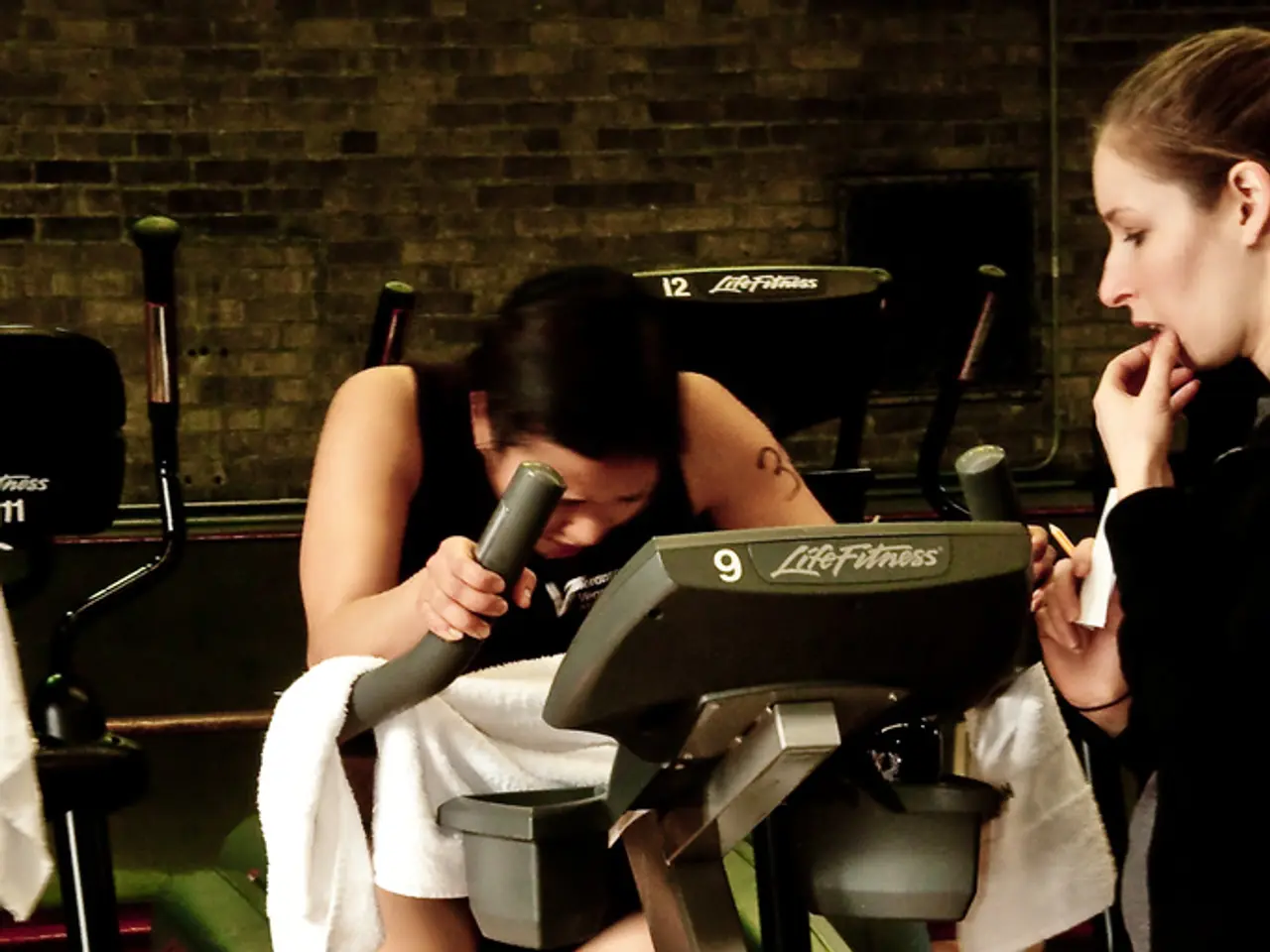The Impact of Regular Exercise on Hormonal Balance
In the realm of maintaining a balanced hormonal profile, exercise emerges as a potent ally. By influencing various hormones such as cortisol, insulin, thyroid hormones, testosterone, and growth hormone, exercise plays a significant role in keeping our bodies in harmony.
#### Aerobic Exercise: A Balancing Act
Aerobic exercise, a popular choice for many, offers numerous benefits, including regulating cortisol levels and improving insulin sensitivity. Over time, regular aerobic exercise helps reduce cortisol, a stress hormone, which in turn supports a healthy balance of other hormones like testosterone and estrogen.
#### Resistance Training: Muscle and Hormone Growth
Resistance training, with its focus on building strength, increases the production of anabolic hormones such as testosterone and growth hormone (HGH). This hormonal surge supports muscle growth, libido, and overall reproductive health while building insulin sensitivity, reducing the risk of metabolic disorders.
#### High-Intensity Interval Training (HIIT): Intense Benefits, Moderate Use
Similar to aerobic exercise, HIIT improves insulin sensitivity and helps regulate cortisol levels. However, due to its intense nature, it may not be suitable for everyone, especially those with low energy reserves.
#### Yoga and Mindfulness Exercises: Stress Relief and Balance
Yoga and mindfulness exercises offer a unique blend of physical activity and mental calmness. By reducing stress and cortisol levels, these practices promote overall hormonal balance and well-being.
#### Nature-Based Activities: A Soothing Balance
Activities such as forest bathing not only lower cortisol and inflammatory markers but also enhance parasympathetic activity, leading to better hormonal regulation. These nature-based activities support the downregulation of the HPA axis, reducing stress hormones like cortisol, and can increase levels of DHEA-S, which supports immune function.
#### Specific Hormonal Impacts
- **Cortisol**: Regular aerobic exercise, resistance training, yoga, and nature-based activities help reduce cortisol, maintaining a healthy balance of other hormones. - **Insulin**: Aerobic exercise, resistance training, and HIIT improve insulin sensitivity, reducing the risk of metabolic disorders. - **Thyroid Hormones**: While direct effects are less studied, overall hormonal balance and stress reduction can support thyroid function. - **Testosterone**: Resistance training increases testosterone, enhancing libido and muscle growth. - **Growth Hormone (HGH)**: Resistance training also boosts HGH, supporting muscle growth and overall health.
In conclusion, a balanced exercise routine that includes aerobic, resistance, and mindfulness exercises can positively impact hormonal health by regulating stress hormones like cortisol, improving insulin sensitivity, and enhancing the production of anabolic hormones like testosterone and growth hormone.
However, excessive exercise or overtraining can suppress immune function. It's essential to find the right balance to reap the benefits while avoiding potential pitfalls. Regular physical activity can help combat depression and anxiety, improve sleep, and increase feelings of self-worth. Exercise can support thyroid function, reduce menopause symptoms, and help balance hormones like estrogen and progesterone. Lastly, exercise boosts the production of cytokines, proteins that help regulate immune response, contributing to a balanced, healthy hormonal profile.
- Fitness routines incorporating aerobic exercise can help in regulating cortisol levels and improving insulin sensitivity, thus promoting a healthy balance of hormones like testosterone and estrogen.
- Regular practice of resistance training increases the production of anabolic hormones such as testosterone and growth hormone (HGH), supporting muscle growth, libido, and overall reproductive health.
- High-Intensity Interval Training (HIIT) regulates cortisol levels and improves insulin sensitivity, but due to its intense nature, it may not be suitable for those with low energy reserves.
- Yoga and mindfulness exercises, combining physical activity with mental calmness, reduce stress and cortisol levels, promoting overall hormonal balance and well-being.
- Nature-based activities like forest bathing lower cortisol and inflammatory markers, and enhance parasympathetic activity for better hormonal regulation.
- In specific terms, regular exercise helps maintain a healthy balance of cortisol, supporting other hormones to function optimally.
- Improved insulin sensitivity through aerobic exercise, resistance training, and HIIT reduces the risk of metabolic disorders.
- Although the direct effects are less studied, overall hormonal balance and stress reduction can support thyroid function.
- Regular strength training boosts testosterone, contributing to improved mental health and emotional well-being.
- Growth hormone (HGH) production is increased through resistance training, which supports muscle growth and overall health.
- Finding the right balance in exercise is crucial to avoid suppressing immune function.
- Workplace-wellness programs that encourage fitness and health-and-wellness activities can help combat depression and anxiety among employees.
- A balanced fitness routine that integrates fitness-and-exercise, aerobic exercises, resistance training, mindfulness exercises, and proper nutrition can positively impact hormonal health while maintaining mental-health and supporting skin-care.




